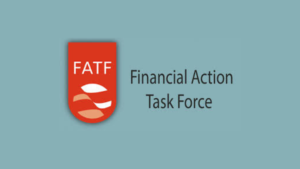GS II-INTERNATIONAL ORGANISATION

India is set to host the FATF Private Sector Collaborative Forum 2025 in Mumbai. The event will focus on crucial global financial issues, including enhancing payment transparency, promoting financial inclusion, and advancing the transformation of digital financial systems.
Overview of the Financial Action Task Force (FATF)
The Financial Action Task Force (FATF) is an international organization responsible for setting global policies and regulations aimed at curbing money laundering and terrorist financing.
Purpose: The primary objective of FATF is to develop and implement international standards that help nations and financial institutions prevent financial crimes.
FATF formulates policies that are adopted across different nations and financial jurisdictions.
Background and Establishment
- Founded in 1989 during the G7 Summit in Paris as a response to rising concerns over money laundering.
- In 2001, its mandate expanded to include countering terrorism financing.
- Headquarters: Paris, France.
Membership and Global Reach
- Countries seeking FATF membership must hold strategic economic importance, possess a well-established banking and financial sector, and adhere to internationally accepted financial regulations.
- The organization consists of 39 full members, including the USA, India, China, Saudi Arabia, Germany, the UK, France, and the European Union.
- Over 180 nations align with FATF through FATF-style regional bodies (FSRBs).
- India became an FATF member in 2010 and also holds membership in two regional FATF-style bodies: the Asia Pacific Group (APG) and the Eurasian Group on Combating Money Laundering and Terrorism Financing (EAG).
FATF’s Role and Impact
- FATF conducts research on money laundering and terrorism financing, formulates global standards to combat such threats, and evaluates countries’ compliance with these regulations.
- The organization releases periodic reports that help governments and financial institutions stay updated on emerging threats related to illicit financial activities.
- The FATF’s guidelines, known as FATF Recommendations, serve as the global standard for Anti-Money Laundering (AML) and Counter-Terrorist Financing (CFT).
- Member nations must commit to implementing the latest FATF recommendations and undergo regular assessments.
FATF Watchlists: Grey List & Blacklist
Blacklist
- Countries classified as Non-Cooperative Countries or Territories (NCCTs) are placed on this list due to their involvement in money laundering and terrorism financing.
- FATF periodically updates the blacklist based on compliance levels.
Grey List
- Countries identified as posing risks for facilitating terror financing or money laundering are added to the grey list.
- Placement on this list serves as a warning and could lead to blacklisting if corrective measures are not taken.
As of now, North Korea, Iran, and Myanmar remain on FATF’s blacklist.
Consequences of Blacklisting
- Nations on the blacklist face financial sanctions and restricted access to funding from the International Monetary Fund (IMF), World Bank, Asian Development Bank (ADB), and the European Union.
- They also encounter severe international economic and financial restrictions, limiting their global trade and investment opportunities.




